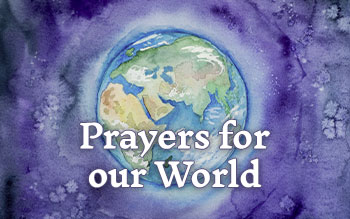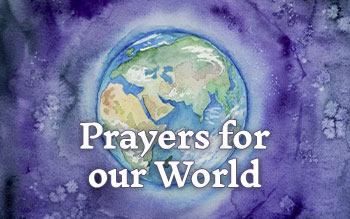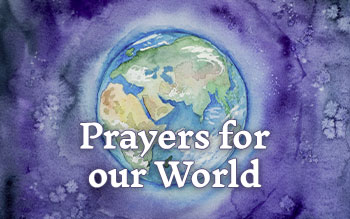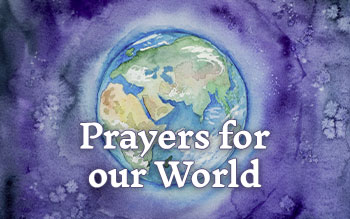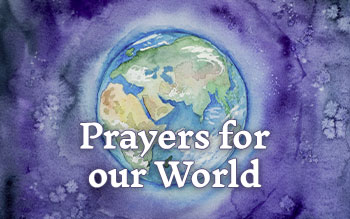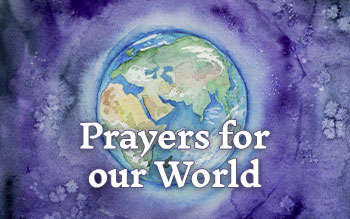Displaying items by tag: Taliban
Afghanistan: Al-Qaeda still 'heavily embedded' within Taliban, UN official warns
Al-Qaeda is still "heavily embedded" within the Taliban in Afghanistan, in spite of a historic US-Taliban agreement earlier this year, a senior United Nations official has told the BBC.
Earlier this year, the US signed an agreement with the Taliban committing to withdrawing all American forces from the country by next summer if the Taliban ensured groups including al-Qaeda were not able to use Afghan territory to plot international attacks.
But Edmund Fitton-Brown, co-ordinator of the UN's Islamic State, Al-Qaeda and Taliban Monitoring Team, has told the BBC that the Taliban promised al-Qaeda in the run-up to the US agreement that the two groups would remain allies.
"The Taliban were talking regularly and at a high level with al-Qaeda and reassuring them that they would honour their historic ties," Mr Fitton-Brown said.
He said the relationship between al-Qaeda and the Taliban was "not substantively" changed by the deal struck with the US. "Al-Qaeda are heavily embedded with the Taliban and they do a good deal of military action and training action with the Taliban, and that has not changed," he said.
Eliminating the threat from al-Qaeda and overthrowing the Taliban regime that had harboured them was the original basis for the US invasion of Afghanistan, following the 9/11 attacks. At the time, President George W Bush vowed to hunt the militants until there was "no place to run, or hide, or rest".
Al-Qaeda's strength and ability to strike the West has significantly diminished over the past decade, but its leader Ayman al-Zawahiri is believed to still be based in Afghanistan along with a number of other senior figures in the group. The Afghan intelligence services announced on Saturday they had killed Husam Abd al-Rauf, a high ranking Egyptian al-Qaeda member, in an operation in Ghazni province. Mr Fitton-Brown told the BBC that despite its lower profile, al-Qaeda remained "resilient" and "dangerous".
How the Taliban's relationship with al-Qaeda develops could determine the future of the Afghan peace process. The Taliban's commitments on international terrorism are the most tangible demands that need to be met as part of the US-Taliban withdrawal agreement. However, the issue is likely to prove divisive, with Taliban hardliners thought to oppose any measures cutting their links with al-Qaeda.
It is feared the Afghan peace process is in any case losing its momentum. Despite the beginning of long delayed negotiations between the Taliban and an Afghan government-led delegation last month in Qatar, violence has continued and even intensified in recent weeks.
The negotiations have stalled amid attempts to resolve preliminary issues, with major issues such as a ceasefire or power-sharing arrangement yet to be discussed. There are fears that if US troops are withdrawn next year, before an agreement has been reached, the violence could intensify and the Taliban push for a military victory.
Mr Fitton-Brown warned that, were the peace process to fall apart, al-Qaeda and the Islamic State group could attempt to further exploit "ungoverned space" in Afghanistan.
"Both of those groups have an avowed aspiration to pose an international threat," he said.
More at: https://www.bbc.co.uk/news/world-asia-54711452
Extracts from an email received from a humanitarian organization serving the people of Afghanistan:
Dear Brothers and Sisters,
While the Taliban are in Doha now since one month to presumable talk about peace with high officials of the Afghan government, the fighting continues unabated and yesterday the Afghan Ministry of Interior (MoI) reported that 180 civilians have been killed and 375 have been wounded over the last month in a spate of violence across Afghanistan.
Many Afghans were expecting that a cease fire would be announced or fighting would slow down, but the Taliban have increased their attacks on the government, Army, police and civilians throughout the country.
“Where is peace? Which peace? While we are going to Doha for talks, you witness a wave of suicide attacks, there are explosions, soldiers are being killed - we do not need this kind of peace,” said Najibullah Kabuli.
Fighting was also reported close to the capital and to the city where our team from the North East is based and also in the west of the country fighting has increased and many other parts. The Taliban try to get into a stronger position as they negotiate with the government.
Please pray that the Taliban would be pushed back and defeated and they would not make any further success!
Please continue to pray also for the so-called peace talks in Doha/Qatar.
The Taliban will definitely try to get a big influence on the present government which could really change the society again into strict Sharia rules.
Please continue to pray for all our foreign and local workers and brothers and sisters for their protection.
Afghanistan: a gloomy future
Following the terrorist attacks of 9/11 and the Taliban Government refusing the USA’s demand for them to surrender Osama bin Laden, the longest war in US history began, killing 3,500 coalition soldiers and 110,000 Afghans. A Taliban insurgency continues, and its forces now control nearly 20% of Afghan territory. Almost half the land is ‘contested’, and the Taliban is stronger today than at any time since the war began. A large-scale US effort to defeat the Taliban would prove costlier than the American public (and therefore any president) is willing to bear. In February 2020 the Taliban agreed to stop their attacks on coalition forces and Afghan civilians, and the USA and NATO agreed to remove their forces by May 2021. Once that happens, there will be nothing to prevent civil war because Pakistan, India, Russia, Iran and others will back their own proxies. Nobody wants a vacuum of power in the country.
Afghanistan: Government Releases 100 'Dangerous' Taliban Prisoners
Afghan officials say they have released about another 100 Taliban prisoners as part of a prisoner swap meant to clear the way for the start of peace talks between Kabul and the Taliban.
Afghan officials have described the remaining prisoners as the most dangerous, accusing them of masterminding attacks on embassies, public squares, and government offices, killing thousands of civilians in recent years.
The release of 400 Taliban prisoners was approved last month at a consultative Loya Jirga in Kabul. Eighty of them were released last month.
The decision came more than five months after Washington and the Taliban made the release of prisoners by both sides a condition for the talks between the militant group and Kabul.
A government official who did not want to be named told RFE/RL on September 1 that the release of the prisoners will be completed in the next few days and that talks between the government and the Taliban will begin in Qatar.
The official said the process could be completed by September 2 and that an Afghan government delegation will immediately travel to the Qatari capital of Doha for negotiations with the militant group.
The release of the prisoners is the last hurdle to opening peace talks between the internationally-backed government in Kabul and the Taliban under a peace deal signed in February between the militants and the United States.
Pray that this release along with reciprocal releases by the Taliban will lead to fruitful peace talks.
Pray that these hardened militants will be supernaturally prevented from taking up arms again.
Pray for all sides to take this situation seriously and for the right people to be appointed to the High Council for National Reconciliation.
Pray for the people of Afghanistan who have suffered for so long, that they will know lasting peace and that their nation will once again prosper.
Afghanistan: IS attack US military base
IS has taken credit for an attack on 8 April on the largest US military base in Afghanistan - Bagram airfield, near Kabul. The attack came as 100 Taliban prisoners were released, as a prerequisite for peace talks. More prisoners should be released near the Bagram base. The government is required to free 5,000 Taliban prisoners, with the Taliban releasing 1,000 members of the Afghan security forces. There is disagreement over the procedure, as to whether senior Taliban commanders would be covered by the deal.
Afghanistan and Taliban begin direct prisoner swap talks
Afghanistan has begun its first face-to-face talks with the Taliban on exchanging thousands of prisoners.
Details of the initial meeting in Kabul emerged on Wednesday 1 April, ahead of a planned second day of talks, as Afghans observed tight restrictions on movement because of the coronavirus pandemic.
Under a US-Taliban deal, the government will free 5,000 Taliban prisoners, while the militants will release 1,000.
The talks took place against a backdrop of continuing violence in the country. Authorities blamed the Taliban for an explosion in the southern province of Helmand on Wednesday that killed eight civilians, including several children.
How much progress has been made in talks?
The prisoner swap had been due to take place in early March, as part of a US-Taliban deal signed on 29 February, but there have been a series of setbacks. Until Wednesday, the two sides had only met by video conference.
With talks due to resume for a second day on Wednesday, Afghanistan's Office of the National Security Council said that progress had only been made so far "on technical matters". The talks were overseen by the International Committee of the Red Cross (ICRC) and the focus was on the release of security force and national defence captives as well as Taliban prisoners, the ICRC said.
Taliban spokesman Zabihullah Mujahid said the meetings did not amount to negotiations, telling AFP: "There will be no political talks there". The US Secretary of State, Mike Pompeo called the beginning of the talks "good news".
The Taliban had been due to send a large team to the Kabul talks, but in the end sent a three-man delegation because of the covid-19 virus outbreak. A spokesman for the militant group said the trio would monitor the prisoner release process and take the necessary technical measures.
Though US troops began withdrawing last month under the terms of the deal with the Taliban, movement on the prisoner swap has been slow because of disagreements between President Ashraf Ghani and his main political rival Abdullah Abdullah.
More at: https://www.bbc.co.uk/news/world-asia-52123951
Pray that these breakthrough talks will lead to a successful exchange of prisoners and that the face to face talks between the government will continue.
Pray for an end to the ongoing violence that is devastating the lives of many Afghans.
Pray that the coronavirus will be arrested in its tracks and that it will not spread.
Taliban council agrees to cease-fire in Afghanistan
KABUL, Afghanistan (AP) — The Taliban’s ruling council agreed Sunday 29th December to a temporary cease-fire in Afghanistan, providing a window in which a peace agreement with the United States can be signed, officials from the insurgent group said. They didn’t say when it would begin.
A cease-fire had been demanded by Washington before any peace agreement could be signed. A peace deal would allow the U.S. to bring home its troops from Afghanistan and end its 18-year military engagement there, America’s longest.
The White House said it would have no comment.
The U.S. wants any deal to include a promise from the Taliban that Afghanistan would not be used as a base by terrorist groups. The U.S. currently has an estimated 12,000 troops in Afghanistan.
The Taliban chief must approve the cease-fire decision but that was expected. The duration of the cease-fire was not specified but it was suggested it would last for 10 days. It was also not specified when the cease-fire would begin.
Four members of the Taliban negotiating team met for a week with the ruling council before they agreed on the brief cease-fire. The negotiating team returned Sunday to Qatar where the Taliban maintain their political office and where U.S. special peace envoy Zalmay Khalilzad has been holding peace talks with the religious militia since September, 2018.
Talks were suspended in September when both sides seemed on the verge of signing a peace pact. However, a surge in violence in the capital Kabul killed a U.S. soldier, prompting President Donald Trump to declare the deal “dead.” Talks resumed after Trump made a surprise visit to Afghanistan at the end of November announcing the Taliban were ready to talk and agree to a reduction in violence.
Khalilzad returned to Doha at the beginning of December. It was then that he proposed a temporary halt to hostilities to pave the way to an agreement being signed, according to Taliban officials.
A key pillar of the agreement, which the U.S. and Taliban have been hammering out for more than a year, is direct negotiations between Afghans on both sides of the conflict.
Those intra-Afghan talks were expected to be held within two weeks of the signing of a U.S.-Taliban peace deal. They will decide what a post-war Afghanistan will look like.
The first item on the agenda is expected to address how to implement a cease-fire between the Taliban and Afghanistan’s National Security Forces. The negotiations, however, were expected to be prickly and will cover a variety of thorny issues, including rights of women, free speech, and changes to the country’s constitution.
The intra-Afghan talks would also lay out the fate of tens of thousands of Taliban fighters and the heavily armed militias belonging to Afghanistan’s warlords. Those warlords have amassed wealth and power since the Taliban were ousted from power in 2001 by the U.S.-led coalition. They were removed after Osama bin Laden’s al-Qaida carried out the 9/11 terrorist attacks on the United States. The Taliban had harbored bin Laden, although there was no indication they were aware of al-Qaida’s plans to attack the United States.
Last year, Afghanistan was the world’s deadliest conflict.
Reporting by Associated Press: Gannon reported from Islamabad.
More at: https://apnews.com/caa4c5aaf88e982ed0cdb4e132b0d89c
Pray: giving thanks for these renewed talks and the hope that this temporary ceasefire brings.
Pray: for grace and commitment to finding a workable, lasting accord on all sides of this complex situation.
Pray: for peace and an end to these deadly hostilities in Afghanistan.
Afghanistan: Taliban Release Hostages in Exchange For 3 Militants
Two western hostages held for more than three years by Taliban forces in Afghanistan were freed today in south-eastern Zabul province in exchange for three Taliban commanders held by the Kabul government, an Afghan official tells NPR's Diaa Hadid. The official requested anonymity because he is not authorized to speak to the news media.
The Taliban has issued a statement saying they released 10 Afghan soldiers along with the two hostages. The group called the prisoner exchange "a step forward in good-will and confidence building measures" that could help the peace process.
Kevin King, an American, and Timothy Weeks, an Australian, were abducted at gunpoint from a car in 2016 just outside the walls of the American University of Afghanistan, in Kabul. Both worked as teachers at the university.
Last week Afghan President Ashraf Ghani said his government would release three prominent Taliban figures in a deal securing the freedom of King and Weeks.
In an address broadcast on state television, Ghani said he had granted the "conditional release" of three members of the Haqqani network, which is linked to the Taliban.
"We have decided to release these three Taliban prisoners who were arrested outside of Afghanistan," Ghani said, in order "to facilitate direct peace negotiations," The Associated Press reported.
The Taliban figures that were released are Anas Haqqani, Haji Mali Khan and Hafiz Rashid.
Anas Haqqani is the younger brother of the Taliban's deputy leader. He is also the son of the founder of the Haqqani Network, a Sunni Islamist militant organization that's responsible for some of the highest-profile attacks in the Afghan war, including assaults on the Kabul Intercontinental Hotel and the Indian Embassy in Kabul.
He has been in Afghan custody since 2014, when he was arrested in Bahrain, the AP reports.
A Taliban official said the three prisoners were flown to Qatar Tuesday, where the Taliban maintains a political office. The release of King and Weeks was apparently held up until the Taliban confirmed its prisoners had been turned over to its representatives in Qatar.
"Today, the United States welcomes the release of Professors Kevin King and Timothy Weeks," Secretary of State Mike Pompeo said in a statement hours after the release. "Both men were successfully recovered this morning, are in the care of the U.S. military, and will soon be reunited with their loved ones."
While saying that the U.S. "condemns the taking of innocent civilians as hostages," Pompeo also added that the U.S. "welcomes" the Taliban's goodwill gesture.
The American University of Afghanistan said in a statement last week that it was "encouraged to hear reports of the possible release of our two colleagues .... While AUAF is not part of these discussions, we continue to urge the immediate and safe return of our faculty members who have been held in captivity, away from their friends and families, for more than three years."
U.S. Ambassador to Afghanistan John Bass also said last week the U.S. "strongly supported" the release of the three Haqqani commanders, according to Afghan news site TOLOnews.
"This is the latest in a series of courageous steps that President Ghani and the Afghan government have taken to respond to the Afghan people's overwhelming desire for peace," Bass told TOLOnews.
The Taliban released two videos of the hostages in 2017, including one that showed the captives looking sickly, though they appeared healthier in the later video, the AP reports.
A separate attack by the Taliban on the American University in 2016 killed at least seven students and six guards.
President Trump has made a priority of getting American hostages released, and has secured the freedom of about 10 hostages held abroad.
More: https://whro.org/news/5171-taliban-release-american-and-australian-hostages-in-exchange-for-3-militants Written by Laurel Wamsley
Pray: for these continued efforts to warm relations between the parties in Afghanistan and abroad to lead to positive and constructive peace talks.
Pray: for the people of Afghanistan who yearn for a peaceful and safe country.
Afghanistan: crises
On 19 September 30+ civilians were killed and 40+ injured in an air attack that accidentally targeted farmers, and 20+ people were killed in a suicide car bomb that hit a hospital. 74 Afghans were killed every day during August. Unrelenting violence affects almost the entire country. The US/Taliban peace talks have failed, attacks are killing dozens in Kabul, militant sieges trap residents in Kunduz and Pul-e-Khumri, airstrikes by security forces kill innocent civilians, and the Taliban have executed a rights commission’s provincial director. Conflict has displaced 237,000+ people this year, and recent floods following extreme drought have uprooted comparable numbers. Hundreds of thousands of refugees are being forced home, increasing the burden on a fragile state with lowering income, high unemployment, and rising debt. Three million people are experiencing food insecurity; one in six need humanitarian assistance. But in the midst of crises, many displaced Afghans are becoming Christians. See the following article, on suffering but growing church.
Afghanistan and its Future
From an organization working inside the country:
"We need your Prayers urgently for the upcoming presidential elections on 28th September. A complex attack on vice presidential candidate Amrullah Saleh on Sunday, July 28 with at least 30 people dead and was carried out by the Taliban marked to beginning of the presidential election campaign. Saleh is running as vice president with president Ashraf Ghani in the elections and stands for a moderate, anti-Taliban regime. The Taliban and their allies had announced as in previous elections, that they would do all they can to stop or at least seriously disrupt the elections. If God does not intervene it will definitely be again a very violent and deadly election campaign.
Please pray for the right person to be elected. Even the former Taliban support and “butcher of Kabul”, Gulbuddin Hekmatyar, launched his election and pledged that religious scholars will be hired in high-level national decision-making levels with his new government.
While the preparations for the next elections are under way, peace negotiations are going on between the US government and leaders of the Taliban. The Trump administration has so far undertaken eight rounds of negotiations with the Taliban. The US president seems to be very eager to get his troops out of Afghanistan and news just came out that the US government is preparing to withdraw thousands of troops from Afghanistan as part of a proposed peace deal with the Taliban. Pray especially for President Trump and his advisors for discernment and for a firm standing in support of the present and new government in Afghanistan.
We and also many local people we spoke to, are disturbed by so called peace negotiations and are concerned and afraid that the US army will abandon Afghanistan and it would fall back again into the hands of the Taliban. It causes a lot of insecurity and uncertainty with the people. Please pray that no dangerous compromises be made and that the foreign armed forces will support the Afghan Army as long as they are need.
Pray also for the teams. Many Team Members have taken a break or are on furlough. Pray for those who bear the extra load and will stay strong and healthy in the heat.
Please pray for continued strengthening and protection of our local brothers and sisters who have remained in the country and that they would be a strong witness to the many desperate people in Afghanistan
Thank you for interceding with us on these key issues.
Afghanistan: radical Islamists recruit at universities
Since IS was driven out of Iraq and Syria, it appears to have its sights set on Afghanistan. While the Afghan government is engaged in peace talks with the hard-line Taliban movement, radical Islamist groups are spreading their ideology at universities. Basira Akhtar, a 22-year-old student, was beaten up twice earlier this year, at her university in Kabul, when her headscarf slipped from her head. In both cases she was accused of promoting Christianity. An Open Doors analyst says, ‘The core of IS militants in Afghanistan consists of many disgruntled Taliban splinter groups and, reportedly, some returning fighters from Syria. They will try to attack in Afghanistan, just like the Indonesian couple who bombed a cathedral in the Philippines in January. For Christians, this basically means that they need to continue to keep their faith hidden as much as possible.’
